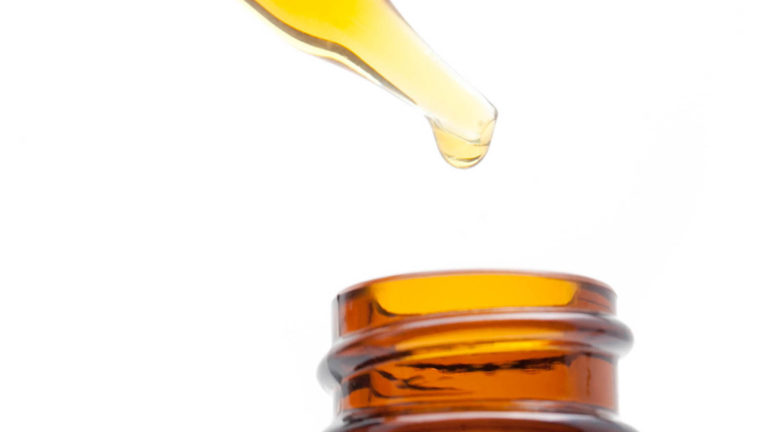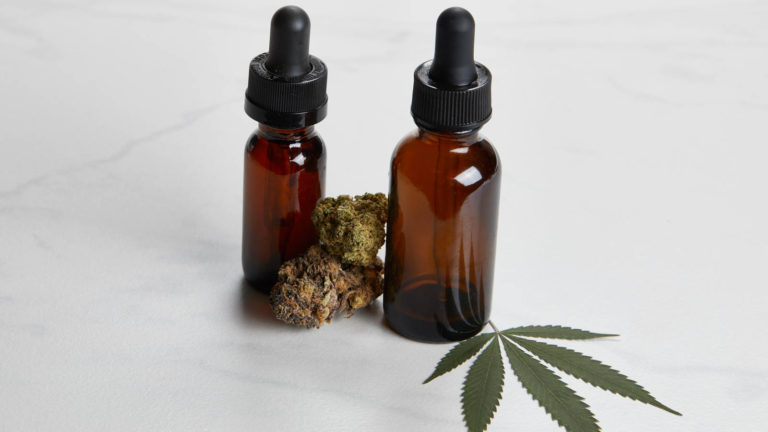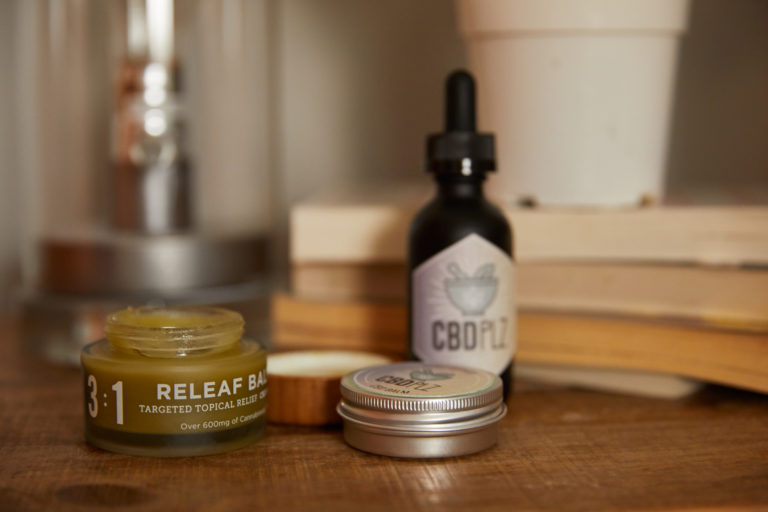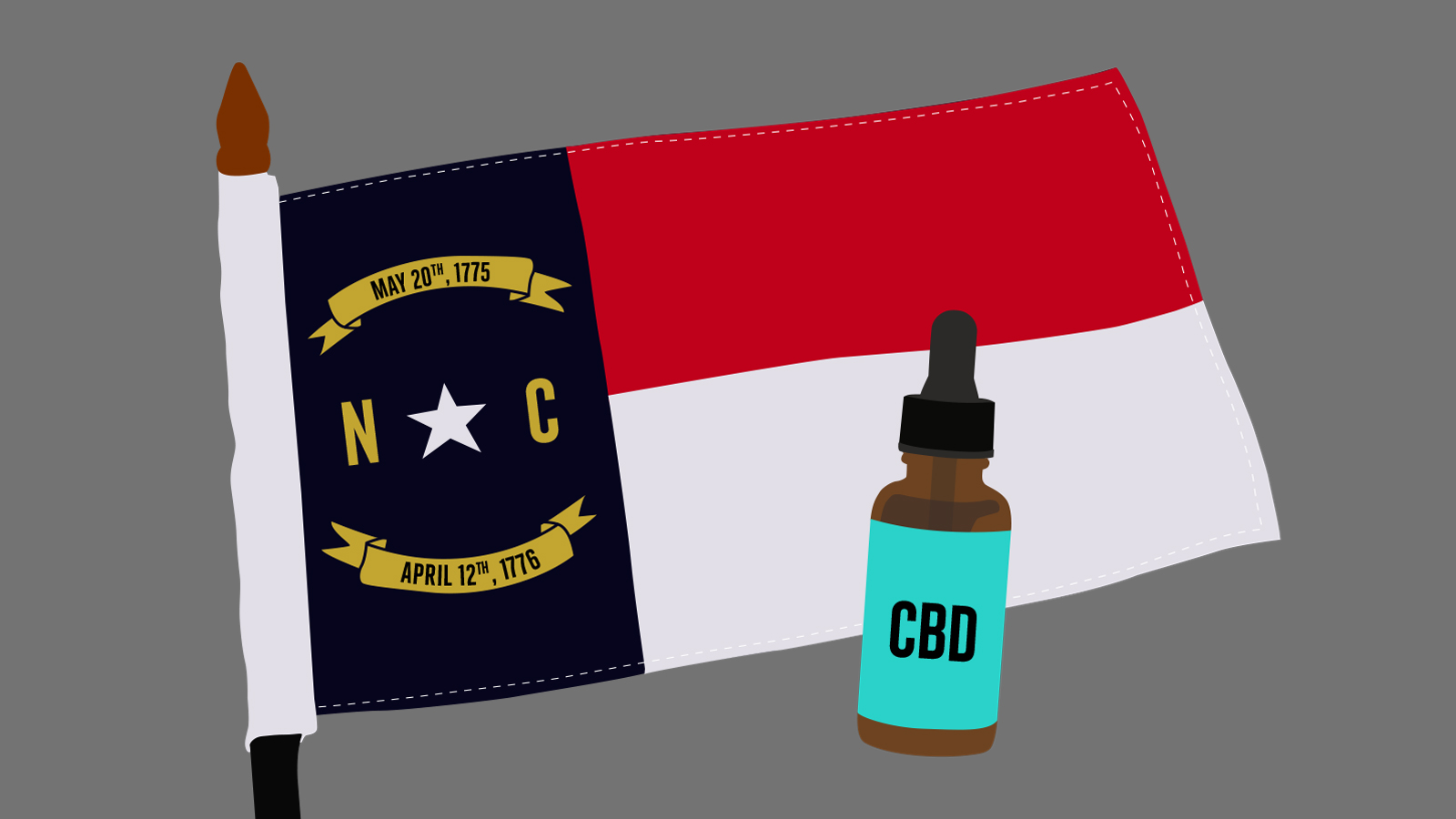Yes. Hemp-derived CBD with less than 0.3% THC became legal at the federal level in 2018 and it is legal in North Carolina. In addition, hemp extract that contains less than 0.9% THC and at least 5% CBD by weight is legal if the person purchasing it is registered with the state as a patient with intractable epilepsy or a patient's caregiver.
What is CBD?
CBD stands for cannabidiol. It is a non-intoxicating cannabinoid found in cannabis. Cannabidiol is the second-most abundant cannabinoid in the plant after tetrahydrocannabinol (THC). It has many potential therapeutic benefits, including anti-inflammatory, analgesic, anti-anxiety, and seizure-suppressant properties. CBD can be sourced from both marijuana and hemp plants.
 Photo by: Gina Coleman/Weedmaps
Photo by: Gina Coleman/WeedmapsImage lightbox

Why is CBD sometimes illegal?
Even though industrial hemp plants don't produce enough THC to cause intoxication, all types of cannabis, including hemp, were made illegal following the passage of the 1970 Federal Controlled Substances Act. The legislation swept all types of cannabis into the Schedule I category, which defined cannabis as a substance with a high potential for abuse, no accepted medical use, and a likelihood for addiction.
However, industrial hemp production was legalized after the passage of the 2018 US Farm Bill, which legalized hemp cultivation and created a pathway to remove some cannabis from Schedule I status by creating a legal divide: Hemp is cannabis that contains less than 0.3% THC by weight, and marijuana is cannabis that contains more than 0.3% THC.
 Photo by: Gina Coleman/Weedmaps
Photo by: Gina Coleman/WeedmapsImage lightbox

Hemp-derived CBD was thus descheduled by the bill, but CBD that is derived from the marijuana plant is still considered federally illegal because marijuana is categorized as a Schedule I substance. While hemp is now considered an agricultural commodity, it still must be produced and sold under regulations that implement the bill.
The Farm Bill also shifted oversight of hemp-derived products to the U.S. Food and Drug Administration (FDA), giving the agency the ability to regulate CBD's labeling, therapeutic claims, and its use as a food additive. Despite the passage of the Farm Bill, the FDA has taken the stance that even hemp-derived CBD may not be added to food and beverages, nor can this non-intoxicating cannabinoid be marketed as a dietary supplement.
While the FDA has begun a process of re-evaluating its stance on such CBD products, it has yet to revise its rules or specifically regulate CBD products, leading to further confusion. The FDA has been strict when it comes to health claims and content that could be construed as medical advice about CBD.
The federal legislation still highly regulates the production and sale of hemp and its cannabinoids, including CBD. The Farm Bill also provides that states may also regulate and even prohibit CBD cultivation and commerce. In addition, states may attempt to regulate CBD foods, beverages, dietary supplements, and cosmetic products, independently of the FDA finalizing its views on such products.
The FDA released guidance on the regulation of cannabis and hemp-derived CBD products in March of 2020. The agency is seeking high-quality, scientific data to help it understand and regulate CBD.
North Carolina CBD laws
North Carolina permitted the cultivation and production of hemp under the Industrial Hemp Pilot Program, authorized in 2014. The following year the North Carolina General Assembly passed Senate Bill 313, allowing the Industrial Hemp Commission to create rules and a licensing structure to stay within federal regulations. The law was modified again in 2016 with House Bill 992, which authorized a research program related to hemp.
The North Carolina Farm Act of 2019, or Senate Bill 315, originally added more clarifications on the production, distribution, and possession of CBD. However, after an impasse over outlawing smokable hemp, all mentions of the plant were stripped from the bill.
North Carolina's hemp pilot program was set to expire in 2020 under a US congressional mandate but Congress extended the expiration date to September 20, 2021.
Separately from the industrial hemp pilot program, in 2014, the state passed House Bill 220, or the Epilepsy Alternative Treatment Act. It allowed patients with epilepsy who register with the state's program to possess and use hemp extract with less than 0.9% THC and at least 5% CBD by weight.
Licensing requirements for CBD
There are no requirements or laws governing the production or sales of hemp-derived CBD with less than 0.3% THC. CBD is not approved by the FDA as a food or beverage additive or as an over-the-counter remedy for any condition. Suppliers need to adhere to federal guidelines and not make any false claims. Additional labeling guidelines can be found below in the section on CBD labels.
To possess hemp extract with 0.9% THC, patients and caregivers must submit a North Carolina Epilepsy Alternative Treatment Act Caregiver Registration Application. This application can be filled out online or sent to the North Carolina Department of Health & Human Services (DHHS). The program is only open to patients suffering from intractable epilepsy.
North Carolina CBD possession limits
There's no possession limit for CBD products in North Carolina or for medical patients with epilepsy who have registered with the state. Medical hemp extract must contain less than 0.9% THC and at least 5% CBD by weight.
Where to buy CBD in North Carolina
It is legal to purchase hemp-derived CBD online, as long as it contains less than 0.3% THC. The United States Postal Service (USPS) and private delivery services are permitted to mail hemp-derived CBD items to North Carolina addresses. There are a growing number of stores and retail outlets that carry hemp-derived CBD products in North Carolina, in addition to online retailers.
While medical hemp extract with 0.9% THC is legal in North Carolina, the state has made no provisions for legal sales, leaving patients and caregivers to seek products outside the state.
You can find out more about where to buy CBD oil on Weedmaps.
How to read CBD labels and packaging
CBD product labels contain important information for consumers, and those should be your most important resource when looking to buy CBD. To keep from running afoul of the FDA, CBD product labels should:
- Not be false or misleading
- Disclose identity statement (honest description of an organization/product), weight or volume of contents, name and place of business, distributor statement, material facts, warning or caution statements, and ingredients)
- Properly display label information
- Not violate the Poison Prevention Packaging Act of 1970, which requires products to be packaged in child-resistant packaging
Where CBD is legal, consumers should seek out only products with the following information on the label:
- Amount of active CBD per serving
- Supplement Fact Panel, including other ingredients
- Net weight
- Manufacturer or distributor name
- Suggested use
- Full-spectrum, broad-spectrum, or isolate
- Batch or date code
 Photo by: Gina Coleman/Weedmaps
Photo by: Gina Coleman/WeedmapsImage lightbox

One of the most important things to pay attention to is whether a CBD product is full-spectrum, broad-spectrum, or isolate.
Full-spectrum means that the CBD has been extracted along with all other cannabinoids and terpenes, including whatever trace amounts of THC the plant may have produced. Consuming full-spectrum CBD may yield better results thanks to the entourage effect, a phenomenon in which the mixture of cannabinoids and terpenes work together to produce a more pleasant experience.
Broad-spectrum means that the product contains CBD and terpenes, but has undergone additional processes to strip out any THC.
Finally, isolate is a product that has gone through more intensive processing to remove all compounds except for CBD. Consuming isolate may produce different effects than full-spectrum or broad-spectrum CBD, as these products do not produce the entourage effect.
This page was last updated on November 30, 2020.

